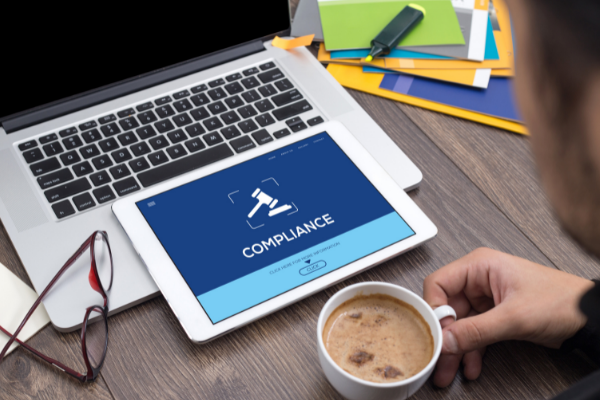BY:
SHARE:

The Export Control Joint Unit (ECJU) has issued updated good practices and reminder prompts on how best to prepare and make acceptable licence applications in Notice to Exporters 2024/1, published on the 10th of January.
The notice makes a good on-hand reminder as to what the ECJU need to see when an application is made and a prompt for the applicant to think about how and why they need to present data so that it is fit for purpose.
Preparing Applications
Users are reminded that all applications received by the ECJU are processed on a case-by-case basis against the Strategic Export Licensing Criteria and note any trade sanctions or embargoes in place where the proposed exports are going.
There is a firm reminder for the applicant to undertake their commercial due diligence. Excellent general awareness of international and world news events can be a good indicator of where there may be areas of international concern that may affect UK-controlled exports and can be a good starting point.
The ECJU cannot provide legal advice. Businesses are advised that they should always seek their own professional or legal advice on compliance with applicable legislation.
Standard Individual Export Licences
A common misconception is that a SIEL is required for every shipment. The ECJU advises that a business does not require a separate licence whenever an export is presented.
A permanent Standard Individual Export Licence (SIEL) is valid for a specific number of items. It lasts two years, and a business can use the licence at any time over the two years as many times as necessary until the licence is exhausted. The licence does not need to be exhausted in one shipment.
Company Contact details on SPIRE
An export licence is a legal document. Therefore, it is essential to ensure that company details are updated. If your company changes its name or trading name or moves premises, contact details should be updated as soon as possible on SPIRE.
It is also recommended that a company have more than one user registered on the system so that there is adequate coverage from a SPIRE account perspective as well as your business user perspective.
Requests for information (RFIs)
An RFI has a specific purpose, and responses to the request for information are linked to the response time. The ECJU have reminded users not to acknowledge receipt of an RFI but to respond with an answer within the allotted 20-day period. Acknowledging receipt without responding appropriately will mean the Case Officer must re-send the RFI.
RFIs are open for 20 working days, and users will be reminded that a response is still waiting. If there is no response, the application will close after the 20 days have expired.
If there is a reason for a delay in responding – for example, if your customer is taking more time than expected to respond to you with documentation,
the reminder from the ECJU is to email your Case Officer. The Case Officer can then help by extending the RFI deadline if this is considered the most appropriate course of action.
End User (EUU), Stockist (SU) Undertakings and Applications
Top Tips
- Make sure you use the correct document template
One of the most common issues stalling a licence application is the accuracy of the End User Undertaking. The first port of call ensures that the most up-to-date undertaking is used at the beginning of the process. Always check that you have downloaded and used the most up to date EUU template; see NTE2022/29.
A business is allowed to use its own EUU template, provided the document includes all the required information in each of the four sections of the ECJU template. - Do not modify the EUU to reflect the regulations of any other country
It is important not to alter an EUU to include information relating to the export control regulations of any other country. The document explicitly supports the UK export control regulations, and keeping data succinct to those requirements is essential. - Make sure the EUU and licence application match
To avoid unnecessary delays, ensure the information on the EUU and your application are correct and match up before you submit your application. - Section 1 (a) of the EUU or SU must show the applicant's company name exactly as shown on the application.
- The EUU or SU letterhead must have an English translation when not shown in English.
- Ensure that the EUU is attached to the application at the time the application is submitted to the ECJU.
Incomplete or missing supporting documents often cause delays in application processing. - Ensure all entities named on the EUU are listed on the application as third parties or as Ultimate End Users.
- Annex A of the EUU must refer to the UK application made by the UK licensee.
Often, EUUs refer to the end user rather than the UK licence, which is incorrect. - Check carefully for spelling mistakes in the application and associated documents.
If there is a spelling mistake on the application, this mistake will be carried through onto the licence. - Make sure the goods on the EUU are in the same order as on the application.
This makes it much easier for the ECJU to reference during application. - The EUU and SU should be supplied in a non-editable format, preferably not in PDF format, for IT accessibility reasons.
Amendments to Applications or to your Licences that have been issued.
- Amendments can be made to already issued licences by emailing the Case Officer named on the application. It will be essential to contact the Case Officer before withdrawing the application. If an amendment is possible, it could be much quicker than re-applying for the licence from scratch.
- There is a limit to the amendments that can be made to an application; therefore, a careful review of the licence application should be made before submission.
- Generally, amendments can be made by the licence applicant until the case progresses beyond the Licensing Unit team. You will need to ask your Case Officer to re-open your application so you can make the changes yourself.
- Once issued, licences do not require amendments where the changes identified are minor, for example, for currency fluctuations or small price increases.
Timescales: Apply in good time
- Apply for any licences you may need in good time to ship your goods and advise the ECJU of any key dates or deadlines.
The ECJU may not always be able to help if the timing is tight, but knowing what the deadlines are for the export will help.
It is also crucial for a working practice direction to consider other influences on the physical ability to move goods in good time, such as air or sea freight booking. A licence application may only be a small cog when considering the logistics of an export, and the application should be factored into planning. - Apply for open individual export licences (OIELs) in sufficient time before any existing or extant OIEL expires (3 to 6 months). Ensure the current OIEL's reference number is in the replacement or renewal application.
Service level agreements and Licence progress
The ECJU service level agreements on licence processing timescales are published online.
- On SPIRE, an applicant can monitor the processing status of the application on the top right-hand side of the screen once logged in.
- Use the Case Officer as the main point of contact for specifics on the application. They will be best placed to answer any questions.
Contacting Licensing Unit (LU) staff
The contact details for ECJU LU staff are on the front page of SPIRE before logging in.
Top Tips
- When contacting ECJU, please add the exporting business company name - licence application reference number, and the destination country in the email title. For example, British Co Ltd – SIE2024/000000 – and destination country.
- When leaving a voicemail message, include the relevant licence application reference number as part of the message, and speak clearly.
- If the relevant Case Officer is away, the first point of contact is the person named in their out-of-office message, NOT the ECJU Helpline
- The ECJU helpline assists with managing the SPIRE account and more general queries.
- ECJU staff can only speak to an applicant company about an application. It is unable to respond to your customers.
A link to the Notice To Exporters 2024/01 is below:
If you are interested in exploring this topic further, you might find it worthwhile to consider the training courses and live clinics offered by Strong & Herd LLP:
OneCall™ Email assistance as and when required; A one-call solution for all your import, export and customs enquiries. Export help. Import help. Customs help.
Stay informed about customs and international trade matters by subscribing to our OneCall™ service. This comprehensive offering includes a dedicated email helpline for support, timely practical updates direct to your inbox (Did You Know?), monthly UK Customs & Trade Briefings and access to an interactive members' area with an exclusive community for our subscribers.
International Trade Updates & Spotlight Newsletter
Subscribe to our free information emails covering international trade topics...
MORE INDUSTRY INSIGHTS...











